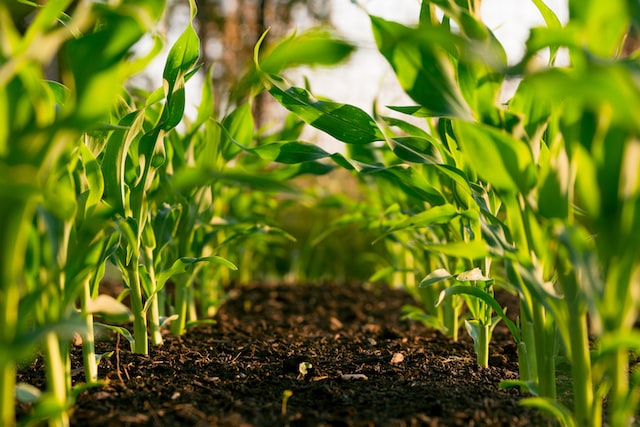Farming is essential to our survival as a species, seeing as how, even if we did have an honest intention to go back, our population is just too large to sustain through foraging. The problem, however, with modern farming lies in the use of resources necessary to sustain the worldís current population. It just takes too much space, too much fertilizer, too much water (for irrigation), and too much energy. Itís a modern problem that requires a modern solution and hydroponic farming might be just what weíre looking for.
Greater efficiency of horticultural lighting
With hydroponic farms, youíre using more levels than just one. This means that the artificial lighting system that youíve installed illuminates more crops at a time. Otherwise, you would need more fixtures, which directly increases energy consumption. Keep in mind that this refers to a scenario in which your hydroponic farm is in an indoor setting. You see, this is a worthwhile consideration mostly because hydroponic farms (due to their vertical layout) take less space and use water instead of soil. This makes them ideal for farms on urban rooftops and shipping container farming.
Lower heat loss
Because there are more crops in a condensed space, the heat loss is minimal. With less space, thereís less air to heat and the plants themselves are using every atom of energy to the fullest. Also, if youíre farming in a closed-off shelter (like a glasshouse or a shipping container farm), the surface that you have to insulate becomes a lot smaller, which automatically makes the process cheaper. You see, in huge indoor farms, the heat loss can be quite substantial. However, seeing as how the vertical planters fill out the room quite nicely, the heat loss is substantially lower, as well.
Simpler maintenance process
One thing that is incredibly important to keep in mind is that hydroponic farming tends to be an incredibly sturdy and low-maintenance solution. First of all, the system is built to last. Second, the system is built to endure outdoor conditions, yet, a lot of people are using it indoors (shipping containers on roofs in urban buildings, greenhouses, etc.). In other words, when set up properly and acquired from the right supplier, the maintenance process will require a minimum of time and energy. This alone saves a huge amount of energy (for all parties involved).
Higher yield per crop
Now, a higher yield per crop is a direct profit boost, however, you need to keep in mind that you should look at a yield from the perspective of invested energy. This means that if you decided to calculate how much energy youíve spent per crop, youíll get a completely new equation to consider. Remember that farming is always about efficiency. Itís about being able to produce as many crops with as little resource use as possible. This way, hydroponic farming gives you exactly what you were looking for while creating an even smaller ecological impact.
Smaller distances
This reduces the carbon footprint of your harvesting process by quite a bit, especially if you use power/fuel-hungry machinery. The fact that you have a vertical farming setup means that the surface covered is considerably shorter. This means that you have to travel less to make a whole rotation. Keep in mind that this is a double-fold benefit, seeing as how it also means that youíre using the space that you have available more optimally. This also means that you can afford to start with less powerful equipment (and save on equipment acquisition), as well.
Saving on fertilizers
Now, one of the things you might not have known, about 80% of all energy used in agriculture comes from manufacturing nitrogen from natural gas. This nitrogen is then used for making fertilizers without which there would be no modern agriculture. Due to their nature, hydroponic farms use roughly 60% les???????s fertilizer than traditional methods. You see, hydroponic farming relies on your ability to use water rather than soil for plant cultivation, which already changes the methodology used. As you can see from the numbers, the difference is just astounding.
Commercial batteries and renewable energy
With the increased development rate of renewable energy sources, more and more private hydroponic farms are run self-sufficiently. Also, a person running a hydroponic farm this way is bound to have a commercial battery installed, so that they can save the excess energy for later. Not only is this more self-sustainable but itís also eco-friendly. Just keep in mind that a lot of this efficiency comes from your choice of battery. However, keep in mind that this technology is advancing at a rapid pace. Therefore, it might be a good idea to wait a bit before investing.
In conclusion
If thereís one thing thatís painfully obvious by now, itís the fact that present-day farming needs a conceptual upgrade. What we need is a way to increase our crop yield while using fewer resources which is by no means a simple task. Moreover, with urban farming on the rise, itís also quite important to come up with a solution that will work out to everyoneís satisfaction. Fortunately, hydroponic farming seems to be the solution to all of these problems.





